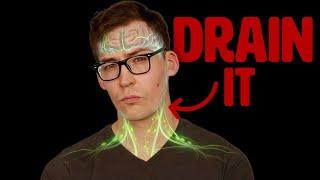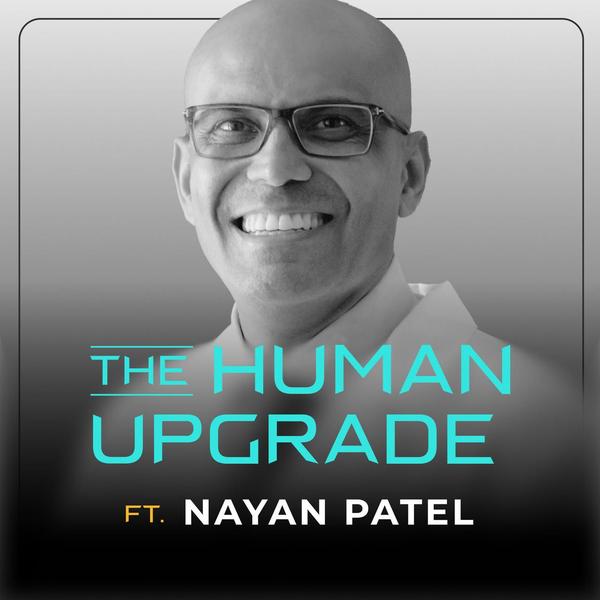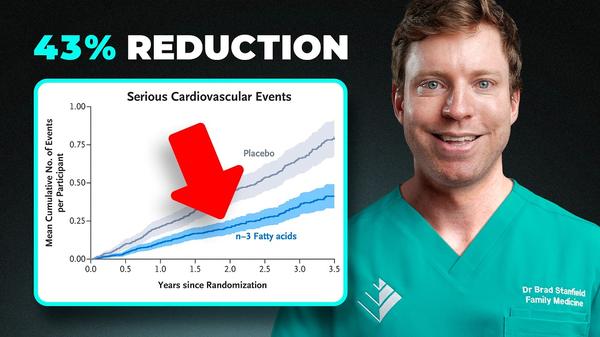THE PHYSIONIC INSIDERS [PREMIUM CONTENT]*
Join the Physionic Insiders: https://bit.ly/PhysionicInsiders2
*HEALTH AUTONOMY [COURSE]*
Learn to Analyze & Apply Studies for Yourself: https://bit.ly/healthautonomy
*JOIN THE COMMUNITY*
Join my Community [It’s Free!]: https://bit.ly/PhysionicCommunity2
*EMAIL LIST*
1-2 Weekly Email of Value [It’s Free!]: http://bit.ly/2AXIzK6
*HIRE ME FOR CONSULTING:*
Consulting: https://bit.ly/3dmUl2H
Created with Biorender
0:00 - Introduction
0:22 - Vitamin D: Destroying Bone? Building Bone?
5:52 - Vitamin D on Bone Density - Mystery thickens...
10:10 - 5 Factors for Effectiveness
11:13 - The Biphasic Response of Vitamin D
12:29 - Main Points
[Study 332] Li, Y., Zhao, P., Jiang, B. et al. Modulation of the vitamin D/vitamin D receptor system in osteoporosis pathogenesis: insights and therapeutic approaches. J Orthop Surg Res 18, 860 (2023). https://doi.org/10.1186/s13018-023-04320-4
Public Funding - High-end Foreign Expert Program of the Ministry of Science, China // No Conflicts of Interest
[Study 333] Nakamichi Y, Udagawa N, Suda T, Takahashi N. Mechanisms involved in bone resorption regulated by vitamin D. J Steroid Biochem Mol Biol. 2018;177:70-76. doi:10.1016/j.jsbmb.2017.11.005
Public Funding - Japan Society of the Promotion of Science // No Conflicts of Interest
[Study 330] Reid IR, Bolland MJ, Grey A. Effects of vitamin D supplements on bone mineral density: a systematic review and meta-analysis. Lancet. 2014;383(9912):146-155. doi:10.1016/S0140-6736(13)61647-5
Funding/Conflicts: Public Funding - Health Research Council of New Zealand // No Conflicts of Interest
[Study 329] Kazemian E, Pourali A, Sedaghat F, et al. Effect of supplemental vitamin D3 on bone mineral density: a systematic review and meta-analysis. Nutr Rev. 2023;81(5):511-530. doi:10.1093/nutrit/nuac068
Internal Funding: Alborz University of Medical Sciences // Conflict of Interest: One researcher is a consultant for Pharmaceutical
[Study 331] Yao P, Bennett D, Mafham M, et al. Vitamin D and Calcium for the Prevention of Fracture: A Systematic Review and Meta-analysis. JAMA Netw Open. 2019;2(12):e1917789. Published 2019 Dec 2. doi:10.1001/jamanetworkopen.2019.17789
Public Funding: Sin-British Fellowship Trust scholarship / One of the researchers is funded by the non-profit UK Medical Research Council
********CRITIQUES, RULES, AND NOTES********
Be aware of the following rules before posting comments:
- Please do not post summaries of the video in the comments - it damages retention on the video and YouTube is less likely to promote it (these videos cost me a lot of money to produce).
Critiques of my work are welcome! Please be aware of the following notes & rules before submitting critique:
Be mindful that this content is not all encompassing on the subject at hand and is self-limited for brevity to reach a wider audience. Also, be aware that I receive hundreds of YouTube comments per day, so the only way your critique can be considered is if you follow the steps outlined below. Finally, YouTube auto-deletes links, so I do not see most comments with links attached.
RULES:
If your comment is rude, you will be banned.
If your comment is not about the studies/topics at hand (i.e. extending to other outcomes not discussed) or offers critique with no scientific basis, it is unlikely to receive a response.
If you can follow these rules, I will try to address your critique and if there is merit, I will add an AMENDMENT to the content in question and pin it so everyone can see it (thank you!).
Please use the following link to submit your critique: https://bit.ly/PhysionicCritique
Disclaimer: None of the information provided by this brand is a replacement for your physician's advice. This brand is information for the sake of knowledge and the options of choice it provides, not in any way a personalized prescription. Please consult your physician before making any health related changes.
#vitamind #bonehealth #bonehealthtips













